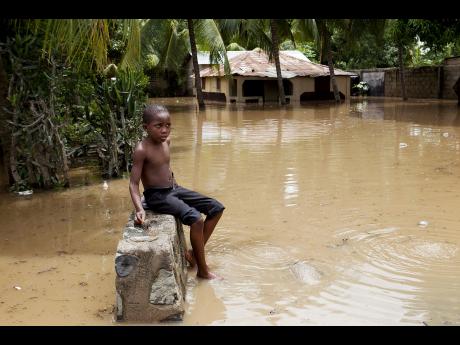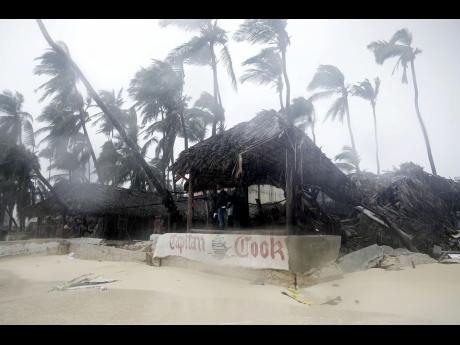Earth Today | Caribbean to fight for IPCC Special Report on 1.5°C temperature rise
CARIBBEAN ISLANDS are prepared to fight for the acceptance of the final draft of the Summary for Policymakers (SPM) of the Special Report on Global Warming of 1.5 degrees Celsius.
The document will come up for approval at next week's plenary of the Intergovernmental Panel on Climate Change (IPCC) in Incheon, Korea.
"It is a very big deal. This is the document that will basically tell us why all the islands, for years, have been asking that we restrict the warming to 1.5 degrees. This document is coming with the evidence of what 1.5 versus what 2 degrees means - and the difference is huge," said Jacqueline Spence, Jamaica's climate change focal point for the IPCC.
"It also speaks to the gaps that exist with NCDs (nationally determined contributions to the reduction of GHG emissions) that countries have agreed to ... Basically it is a road map and we need it, especially SIDS. This is our survival document. If we don't get this document approved, it means we are standing in a very bad position," she added.
REPORT SHARING
The report and its SPM were commissioned by governments following the global climate talks in Paris in 2015, and in the wake of years-long advocacy by, in particular, the Alliance of Small Island States, including Caribbean Community (CARICOM) members.
The need for the report was given impetus by the historic Paris Agreement that resulted from the 2015 negotiations, which reflect the commitment to "holding the increase in the global average temperature to well below 2 degrees Celsius above pre-industrial levels and pursuing efforts to limit the temperature increase to 1.5 degrees Celsius above pre-industrial levels".
This was, according to the Agreement, "recognising that this would significantly reduce the risks and impacts of climate change" that include global warming, sea level rise and extreme weather events, the likes of the hurricanes which devastated parts of the Caribbean last year.
Those impacts, in turn, threaten coastal lives and livelihoods such as tourism and fisheries; public health due to the potential for, as one example, the prevalence of vector-borne diseases such as dengue, chikungunya and Zika; as well as freshwater and food security.
Still, now with the work by IPCC scientists near complete on the SPM, acceptance appears in question as some of the world's principal polluters - countries primarily responsible for greenhouse gas emissions that fuel the changing climate - have reportedly raised a variety of objections.
PRECISE DETAILS
The precise details of those objections were not immediately clear, but they will emerge next week.
The IPCC shared the final draft of the report with governments back in June, with a request for comments on the SPM by July 29.
"The review of the final draft is a key stage in the preparation of the report, allowing authors to prepare for the line-by-line approval session of the SPM that will take place (from October 1-5). The report, to be released on October 8, subject to approval by the Panel, will be the key scientific input into the Talanoa Dialogue at the UN Climate Change Conference to be held in Katowice, Poland, in December," explained the IPCC in a June 4 release.
"The aim of this final review is to ensure that the Summary for Policymakers is accurate, well-balanced, presents the findings of the underlying report clearly, and is consistent with the scope of the full report as approved by the Panel at the 44th session of the IPCC in October 2016," it added.


